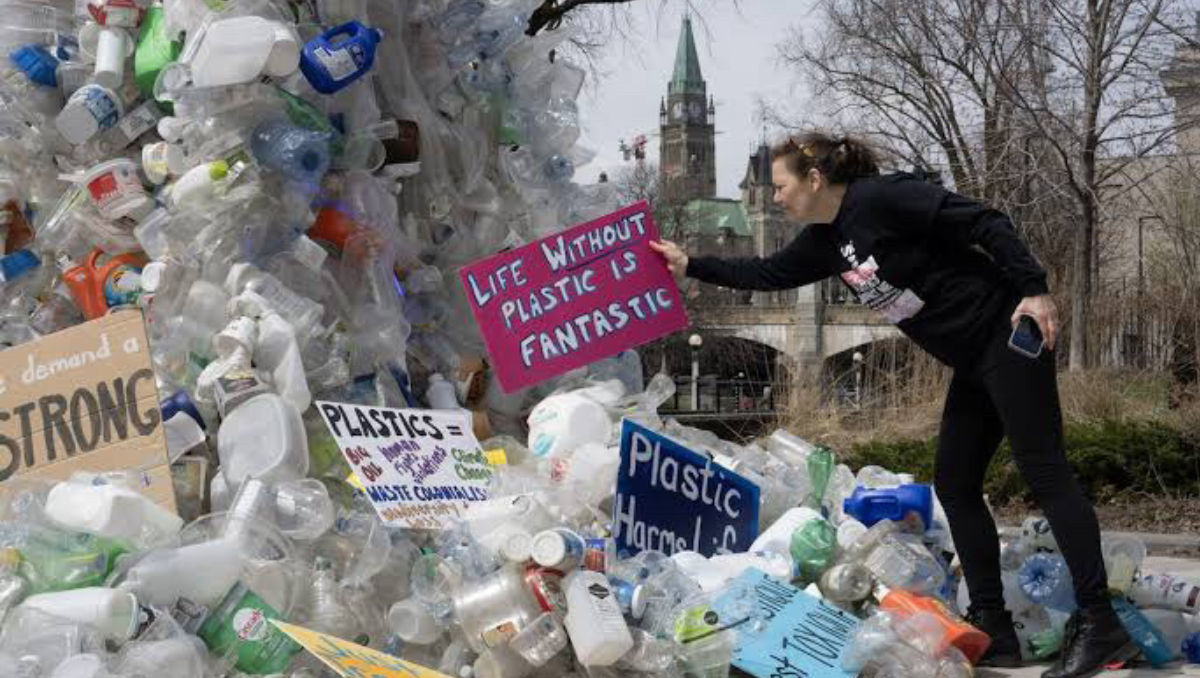The 4th session of negotiations have opened up in Ottawa for this week
Negotiations on the Global Plastics Treaty by the Intergovernmental Negotiating Committee of the UN have begun in Canada involving 192 countries, to come up with a legally binding framework on plastic use and plastic pollution. This is the fourth session with the final one being in South Korea by the end of this year. Before it were three rounds of negotiations: One in Punta del Este, in November 2022; Second in Paris in June 2023; and third in Nairobi in November 2023.“Seize this opportunity, make these seven days count, deliver a text that is as close as possible to the final agreement that we all want to see,” said Jyoti Mathur- Filipp, Executive Secretary of the INC.
Image Source: The Manila Times
Why is the global plastics treaty needed
The reason why a global plastic treaty is necessary is because of the increasing crisis of plastic pollution. It has become a widespread problem that affects wildlife, the environment, and human health. The purpose of this treaty is to establish binding rules and comprehensive circular economy measures that cover the entire life cycle of plastics, from production to waste management. By doing so, it will encourage investment and innovation needed to bring about global change and put an end to plastic pollution. The treaty aims to reduce plastic production, promote the adoption of refill and reuse systems, and shift away from unnecessary plastic packaging. A report from the U.S. federal Lawrence Berkeley National Laboratory stated that if the present rate of carbon emissions from the plastic industry continues, it can alone amount to 20% carbon emissions by 2050.
Some potential solutions being discussed in the negotiations
1. Reduction targets: Setting specific targets to reduce the production and consumption of single-use plastics and promoting the use of sustainable alternatives.
2. Extended producer responsibility: Holding manufacturers accountable for the entire lifecycle of their products, including proper disposal and recycling.
3. Plastic waste management: Implementing effective waste management systems to ensure proper collection, sorting, and recycling of plastic waste.
4. Innovation and research: Encouraging investment in research and development of new materials and technologies that are more sustainable and less harmful to the environment.
5. Public awareness and education: Promoting awareness campaigns and educational initiatives to inform the public about the impacts of plastic pollution and encourage behaviour change.
What are the different takes that countries hold
The goal of the countries involved in negotiations is to put in place worldwide and local strategies. These strategies include taking plastic products off the market, finding alternative practices or non-plastic substitutes to decrease production, and redesigning problematic items to meet sustainable and safe design standards.
While the “Like-minded nations” which are major petrochemical and plastic producing nations like China, Saudi Arabia, Iran opposed the production bans and chemical disclosures, the “High- Ambition Coalition” comprising EU nations and Japan aim at ending plastic pollution completely by 2040. The US, however, is against entirely prohibiting single-use and avoidable plastics but suggests that each country prepares its own list of problematic products.
Image source: down to earth
What is India’s stance
India has a position closer to The US, as India is in favor to regulate and not outright ban single-use plastics. According to the Plastic Waste Management Amendment Rules, 2021, India has already banned 19 categories of single-use plastics. This law was passed after an expert committee report under the Department of Chemicals and Petrochemicals who derived a conclusion after assessing and scoring various categories of plastic products based on their environmental impact and utility. In the INC session, India’s proposal is to regulate plastics based on a “science-based criteria” to identify avoidable plastics.
